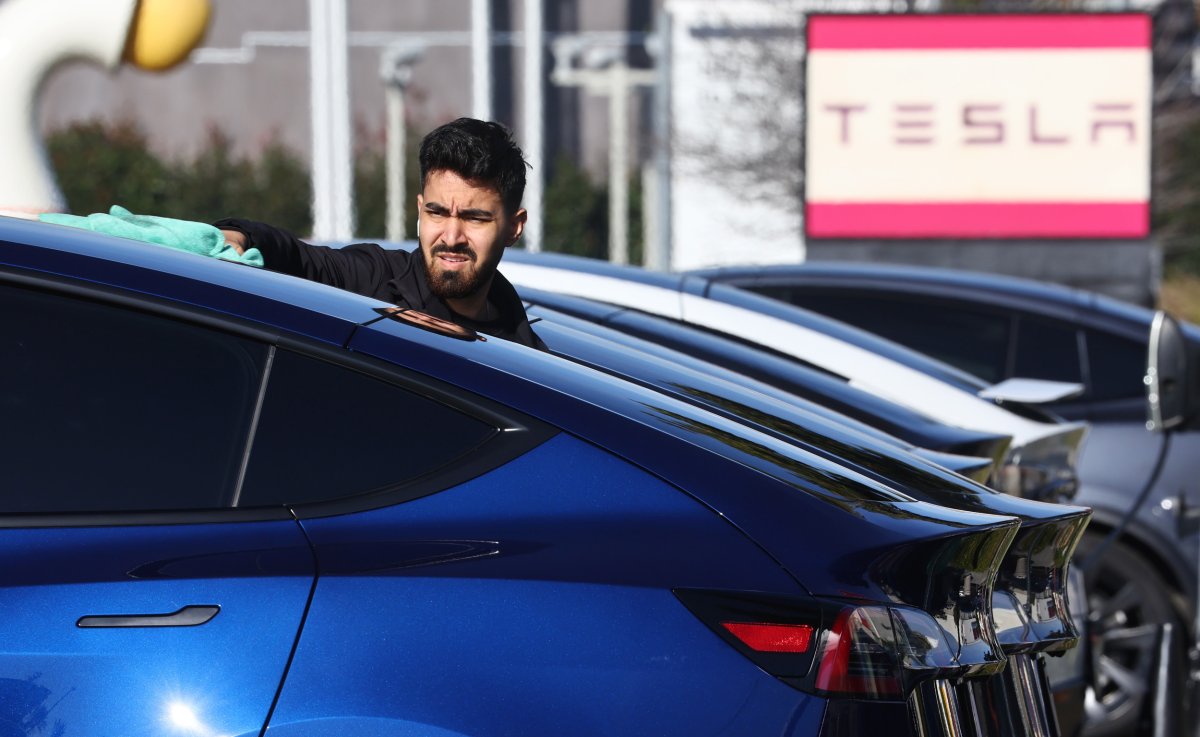A growing number of Americans might no longer be able to afford car insurance, and it could have a rippling effect on the auto industry and overall economy.
Rising insurance costs have been linked to a significant number of young Americans, roughly 45 percent, who say they've thought about going without auto insurance because of the expense, according to a new Deloitte report. And about one in five, or 17 percent, of those surveyed between the ages 18 and 34 say they're already driving uninsured.
Car insurance climbed 19 percent in 2023 compared to the year prior, marking the biggest yearly increase since 1976. The numbers reflect a darkening reality to financial experts, and it's one they expect to fully be a car insurance crisis.
"We are absolutely heading toward a car insurance crisis, and the results for Americans could be devastating," Alex Beene, a financial literacy instructor for the state of Tennessee, told Newsweek.

"We had a combination of rising automobile prices and increasing auto-related wrecks and fatalities during the pandemic that saw insurance prices soar and never come back down."
Beene said he has seen some Americans' auto insurance surge by nearly 30 percent, and this can even happen to those with older models and no history of tickets or accidents.
Insurance rates skyrocketed for a number of reasons in the aftermath of the pandemic. Insurers bumped prices initially when people returned to their offices and typical driving routines as the chances of getting into an accident surged.
But the uptick in car repair costs have also been a substantial factor on the back of inflation and supply chain challenges. Additionally, Americans have adopted electric vehicles at a widespread level, and these cars cost more than traditional cars to repair as well.
'Domino Effect'
While Americans might be swayed into giving up their coverage because of the cost, Beene believes it would be a mistake.
"A good rule of thumb is to not let rising insurance costs cause you to completely drop your coverage, which is unfortunately the feeling it often triggers," Beene said. "Work with your insurance company to see where you cut down expenses, and, if all else fails, shop around to other providers."
Generally, you should try at least three insurers before settling on one because prices can vary, especially for newer drivers or those with a history of tickets or accidents.
Many car insurance providers will raise rates for certain groups of the population, which is unfortunate for younger Americans and newer drivers. Christopher Hensley, a financial adviser and president of the Houston First Financial Group, said it's one of few areas in which age discrimination is implicitly permitted.
"Insurance companies tend to charge higher rates for individuals under 25 due to the higher statistical likelihood of accidents in this age group," Hensley told Newsweek. "While this practice can result in lower rates for older drivers, it places a heavy burden on young adults who are good drivers but still face high premiums. As most young people are just starting out in the world, these high rates can be particularly daunting and unfair."
While higher insurance rates inevitably hurt your wallet, the financial pain that occurs when you need it but don't have it can be far worse, experts said.
Those who don't have car insurance are often putting themselves at risk. If they get into an accident and the car is totaled without any collision coverage, they would likely find themselves without a car, impacting their job, food security and more.
But there's also a ripple effect that occurs when large numbers of Americans decide to opt out of their auto insurance.
"Everyone else, including us regular insured folks, can end up paying more for our car insurance," Hensley said. "It's like this domino effect. Insurance companies shell out money for accidents involving uninsured drivers and then hike up premiums to cover these costs."
Chris Fong, the CEO of Smile Insurance Group, echoed this sentiment.
"The future in auto insurance seems very murky," Fong told Newsweek. "The increasing number of uninsured drivers is alarming because it has the potential to cause premiums to go even higher for those who choose to have auto insurance."
On a larger scale, the economy will face substantial troubles, too.
"All the costs from accidents, legal tangles and the extra burden on health care and public resources, it's us, the taxpayers, who often end up footing the bill," Hensley said. "It's a real headache, especially for people on a tight budget."
Are you having a hard time affording car insurance? Newsweek wants to hear from you. Contact us at personalfinance@newsweek.com.
Uncommon Knowledge
Newsweek is committed to challenging conventional wisdom and finding connections in the search for common ground.
Newsweek is committed to challenging conventional wisdom and finding connections in the search for common ground.
About the writer
Suzanne Blake is a Newsweek reporter based in New York. Her focus is reporting on consumer and social trends, spanning ... Read more
To read how Newsweek uses AI as a newsroom tool, Click here.






